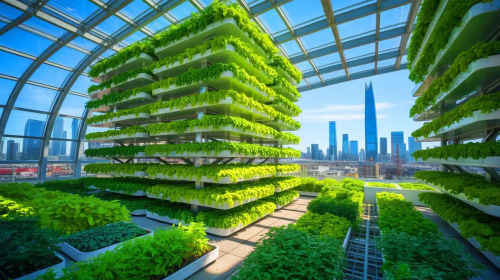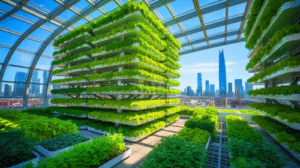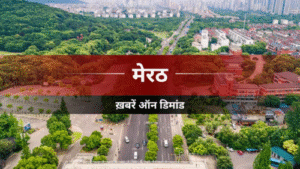China has introduced one of the most ambitious agricultural innovations the world has ever seen — a 1,000-acre vertical farming city designed to transform how humanity grows food in a warming, resource-stressed world. Built around towering stacked farms and controlled-climate structures, this futuristic ecosystem promises year-round food production using only a fraction of the water, land, and energy required by traditional agriculture.
At the heart of the project are multi-level agricultural towers powered by hydroponics, LED-based sun simulation, AI-driven irrigation systems, and renewable energy. These technologies cut water usage by up to 90%, eliminate the need for soil and pesticides, and protect crops from extreme weather — a crucial advantage as climate change disrupts global food systems.
The vertical farming city is remarkably efficient, capable of producing up to nine times more yield than conventional farmland. Built directly within urban zones, the system drastically shortens supply chains, reduces transportation emissions, and ensures fresher produce for millions of city residents.
Designed as a closed-loop, zero-waste ecosystem, the project recycles water, nutrients, and energy, positioning itself as one of the most sustainable agricultural models in the world.
Experts say innovations like this could be decisive as the global population approaches 10 billion by 2050. With arable land shrinking and environmental pressures mounting, vertical agriculture may soon become essential not just for feeding cities, but for protecting forests and restoring ecological balance.
China’s new vertical farming city stands as a bold example of how technology-driven agriculture could secure the planet’s food future — efficient, climate-resilient, and sustainable.







